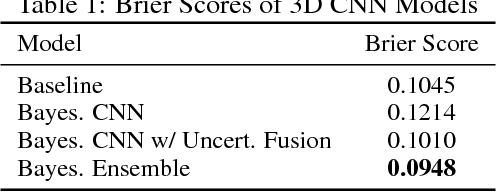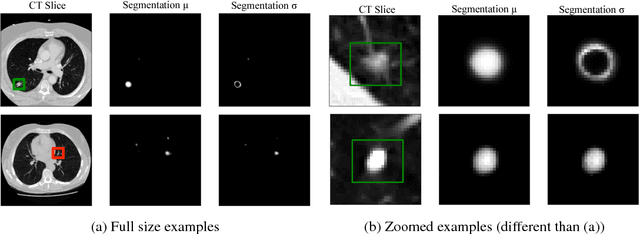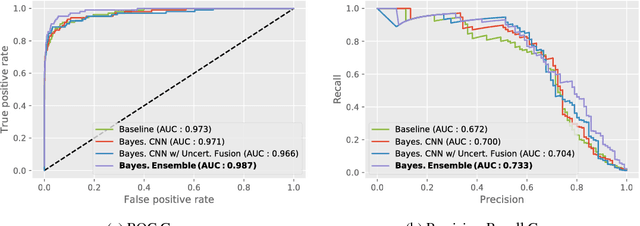Propagating Uncertainty in Multi-Stage Bayesian Convolutional Neural Networks with Application to Pulmonary Nodule Detection
Paper and Code
Dec 01, 2017



Motivated by the problem of computer-aided detection (CAD) of pulmonary nodules, we introduce methods to propagate and fuse uncertainty information in a multi-stage Bayesian convolutional neural network (CNN) architecture. The question we seek to answer is "can we take advantage of the model uncertainty provided by one deep learning model to improve the performance of the subsequent deep learning models and ultimately of the overall performance in a multi-stage Bayesian deep learning architecture?". Our experiments show that propagating uncertainty through the pipeline enables us to improve the overall performance in terms of both final prediction accuracy and model confidence.
* NIPS Workshop on Bayesian Deep Learning, 2017
 Add to Chrome
Add to Chrome Add to Firefox
Add to Firefox Add to Edge
Add to Edge